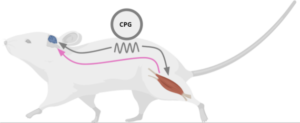News, Opportunities
We are recruiting neuroscience postdocs
 Postdoctoral fellowships in cerebellar neurophysiology
Postdoctoral fellowships in cerebellar neurophysiology
Université de Paris, SPPIN, CNRS, Paris, France.
We are seeking multiple post-doctoral fellows for fully-funded positions at the SPPIN in central Paris (SPPIN – Saints-Pères Paris Institute for the Neurosciences, CNRS, Université de Paris, 45 rue des Saints-Pères, Paris, France). Successful candidates will be involved in multifaceted projects dedicated to studying the role of the cerebellum in motor control using calcium imaging and electrophysiological recordings in awake, behaving animals, as well as machine learning techniques for behavioral analysis.
Proposed projects are focused on unravelling cerebellar processing in sensorimotor integration tasks :
- We combine the unique expertise of two teams in the institute to break the sensorimotor loop of a simple locomotion behavior into individual sensory and motor components. We use electrophysiology and 2-photon imaging to understand how each individual component of the behavior is processed by populations of cells in the cerebellar microcircuits. We then use knowledge gained from the individual components to understand how sensory feedback interacts with motor commands in the cerebellum of awake mice running on a treadmill (PIs: B Stell and M Manuel).
- The cerebellum plays a crucial role in the timing and coordination of movements, but the cellular underpinnings of such a task remain largely unknown. Our goal is to unravel the functional role of the cerebellar molecular layer interneuron network during the acquisition of a locomotion task and adaptation to environmental changes. The results will advance our understanding of a cerebellar microcircuit and its involvement in generating coordinated movements in mammals (PI : M Graupner).
- Recent work suggests that the cerebellum has a predominant role in processing cognitive and emotional aspects of behavior. We aim to study the role of the inhibitory network of the cerebellar cortex in processing reward context of a motor task by imaging molecular layer interneurons and interfering with their activity while mice are performing motor tasks with variable reward contents. The project involves collaborations with Laure Rondi-Reig and Diego Restrepo, laboratories with extensive experience in behavioral studies and electrical and optical recordings of neuronal activity (PI : I Llano).
Applicants should hold a PhD in or related to neuroscience. The ideal candidates have practical skills for in vivo experimental work, a background in neurophysiology, and a deep desire to understand the principles underlying the functioning of the nervous system. Animal surgery, animal handling and programming skills are beneficial.
For applications we request: (i) a cover letter including a statement of motivation, (ii) a curriculum vitae, as well as, (iii) the names and addresses, including emails, of three academic references.
Interested candidates can meet Brandon Stell at SfN 2019 in Chicago.
Project Leader contacts:
- Brandon Stell brandon.stell@parisdescartes.fr
- Marin Manuel marin.manuel@parisdescartes.fr
- Céline Auger celine.auger@parisdescartes.fr
- Daniel Zytnicki daniel.zytnicki@parisdescartes.fr
